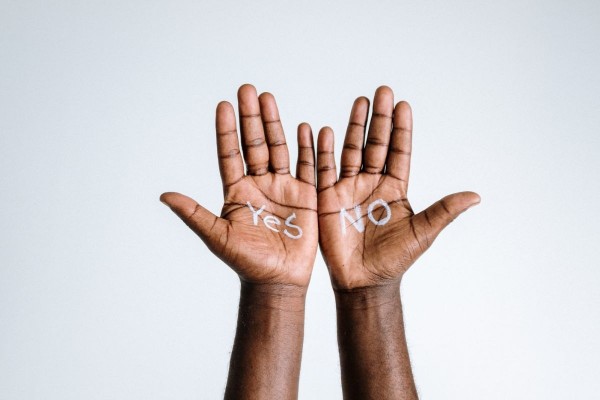And adaptative leadership model, balancing Focus and Flexibility

In a recent session of my Mastermind groups, we have explored our respective perspective of our own purpose. For the discussions, I have used the Lewin’s Force Field analysis model with the aim to provide a helpful map of the positive forces that support us, as well as the obstacles that work against us.
In a recent session of my Mastermind groups, we have explored our respective perspective of our own purpose. For the discussions, I have used the Lewin’s Force Field analysis model with the aim to provide a helpful map of the positive forces that support us, as well as the obstacles that work against us.
When thinking about ‘living our purpose’, internal driving forces normally include our motivators, believes and emotions. As well, our flexibility to change and adapt, and our ability to focus are highly relevant. But getting to feel “the flow” M. Csikszentmihalyi talks about, with one’s purpose is openly subject to the impact of additional external positive forces. It looks and makes us feel like if ’everything’ is setting us up to succeed.
There is another side of the coin that pushes us ‘out of the flow’. In our Mastermind session we have analyzed those restraining forces, starting with any believes that may be blocking us: those internal ‘little malicious voices’ that challenge our path and, if allowed, may destroy our journey and efforts to reach the destination. And, not to forget, other external factors may turn as threatening as the internal ones and have similar strength to block us.
During our group discussions we have created a nurturing environment, in which each participant would feel safe to reflect, share their inside world and open up to appreciate diverse perspectives. We committed to reach the following outcomes: increase our individual capability to self-reflect, recognize upcoming opportunities, and focus on the preferred choice(s). The intention was to build up our internal resources to self-regulate and adjust. As a desired state we determined to focus on few relevant predefined elements and keep a broad openness to new perspectives and influences. We continued to ‘follow our path’ which often demands high inner adaptability.
Self-awareness takes the space from feedback
‘Everything we hear is an opinion not a fact. Everything we see is a perspective, not the truth’ (Marcus Aurelius)
Increasing self-reflection capabilities became a demand in the current COVID-19 environment and will remain important in the future. In my coaching practice I have noticed a few sparks of self-reflection but a rather high dependency on feedback.
I need to share a few doubts related to feedback. As a Human Resources professional, I am concerned that strict people processes may lead to an excessive dependance on feedback.
The dependence on feedback decreases the trust in our own judgement and makes us a ‘doll in someone else’s hands’. We risk getting caught in the game of managing perceptions, which, in my opinion, is exposed several ethical dilemmas that I shall not detail at this moment.
This mentioned dependency is more damaging in the current situation when numerous people are working remotely. If end up being dependent on feedback as a guiding principle of our personal development or change management, we may perceive a certain sense of isolation due to the current ‘social separation’ circumstances that naturally handicap the ordinary paths for feedback interactions. Even if we have the courage to ask for feedback, what people can observe in the available online settings is subject to some limitations like the difficulty to frame the context for the feedback or diverse personal circumstances. I certainly had days when I just tried to hold myself together during the call not to burst out. I heard many similar examples. And how could I rely on the feedback from that isolated event? We live to a big extend in a shared context– one of high complexity, ambiguity, isolation, and each of us is coping with it at our best. I started to think that in our present context collecting feedback may be even a damaging action, as the feedback giver simply cannot be aware of how the existing context is affecting the feedback receiver.
There is a powerful path to replace, or at least equalize, that addictive dependence in
forms of confirmation coming from others with a conscious activation of internal powers of self-reflection. I am not intending to suggest to ignore those external drivers and people’s points of view at all. What I aimed in the group was to achieve an awareness of all the complexity and offer simplicity.
In our Mastermind session, we unveiled a clear emerging pattern when we shared our stories, driving forces and obstacles: shifting attention between Focus and Flexibility. Let me comment on each of them.
Focus
’It is during our darkest moments that we must focus to see the light’ (Aristotel)
There are days that I just cannot look at the screen anymore. The amount of information, options, online meetings, and emails are overwhelming my sensors. If I continue to follow the triggers and stimulants, I end up in the hamsters’ circle. Steve Jobs said that focus is about saying NO to things. I need to reduce the complexity and focus on what is important to me,
focus on my well-being, my purpose, my objectives, my team, the closest people, put a high attention to selected topics as I deprioritize other ones. What if I keep in the focus all the triggers? What if I keep on focusing on the feedback I got? Well, I do not know for you who are reading me now, but it would lead me to a certain burn out sensation.
Focus provides clarity on grouping and prioritizing the driving forces and defining the approach to manage the contradiction; especially the restraining forces that come under the form of self-doubt.
In my case, such an increasing focus remains for certain limited period of time. I struggle with the downsides that a too intensive focus brings inside me in the form of rigidity, lack of collaboration or lack of empathy. Through self-reflection I push myself to open up again to variety and choice. Staying long in an overly focused space creates unhealthy environments for me. The force of self-reflection energizes a movement towards flexibility.
Flexibility
‘Flexibility is one of the main roads leading to happiness.’ (Mehmet Murat Ildan)
A flexible approach increases the options and helps to focus on opportunities rather than on blockages. Training a flexible mindset gets you into the space where you adapt to circumstances, where everything is somehow possible. You start to perceive the changing environment, fixed objectives, or pre-set approaches as just another way of doing things. Some may confront at this stage flexibility with trust and reliability. The overuse of any strength can lead to not intended consequences. Too high flexibility and adaptability might make a person be perceived as unreliable. The flexibility I am talking about is referring to feeling comfortable with shifting perspectives and choosing the best fits at the given moment and circumstances; the flexibility to choose the next step through a bias-free assessment of the circumstances; the flexibility to look at our strong opinions and assess them. As we mentioned before, those strong opinions frequently initiate internal “little malicious voices” that may destruct our best intentions. And if those strong voices are fed with feedback dependency, it is difficult to keep the track of our own purpose. The aim is to provoke the change, not because someone gave us the feedback to change but because we detected through self-reflection that some of our believes are in fact our blockers (or restraining forces). In that case, the power of engagement with change is much higher.
The dance between Focus and Flexibility
When to be more focused or increase flexibility relies on assessment of current or desired state and emotions involved.
When we strengthen and rely on the self-reflection muscle, with practice we can easily detect where are we currently in relation to any challenge or change that we desire. Activated self-reflection will signal us that we need to increase the focus and reduce complexity. Or that we are blocked and overthinking. Signals could vary from tiredness, anxiety, lack of energy, lack of sleep, mood swings and similar reactions. By strengthening self-awareness, we can react on the first signal or even better, act proactively. But of course, we are not isolated from the world and others. We collect feedback from TRUSTED and well-intentioned sources, without being dependent on it. We are curious about how people perceive what we do, or about what we intent to do. And we take their points of view as additional inputs. Never as ultimate truth.
External forces may act in our favor or against. Ignoring them is not an option, therefore let us work with them.
Exercising 2F model prepared 4U provides a powerful opportunity of governance of the parts of your wellbeing that remain within your scope of influence and power. I have practiced it during the lockdown, and it helped me on individual and leadership level in many occasions.
In our Mastermind group, members were talking that the balance between the 2Fs that was felt as a relief. It was rewarding to see their dance across the infinity line as they reflected on their drivers and as an outcome feel the strong engagement with their purpose.
Edited version of this article published on UnleashGroup.io







